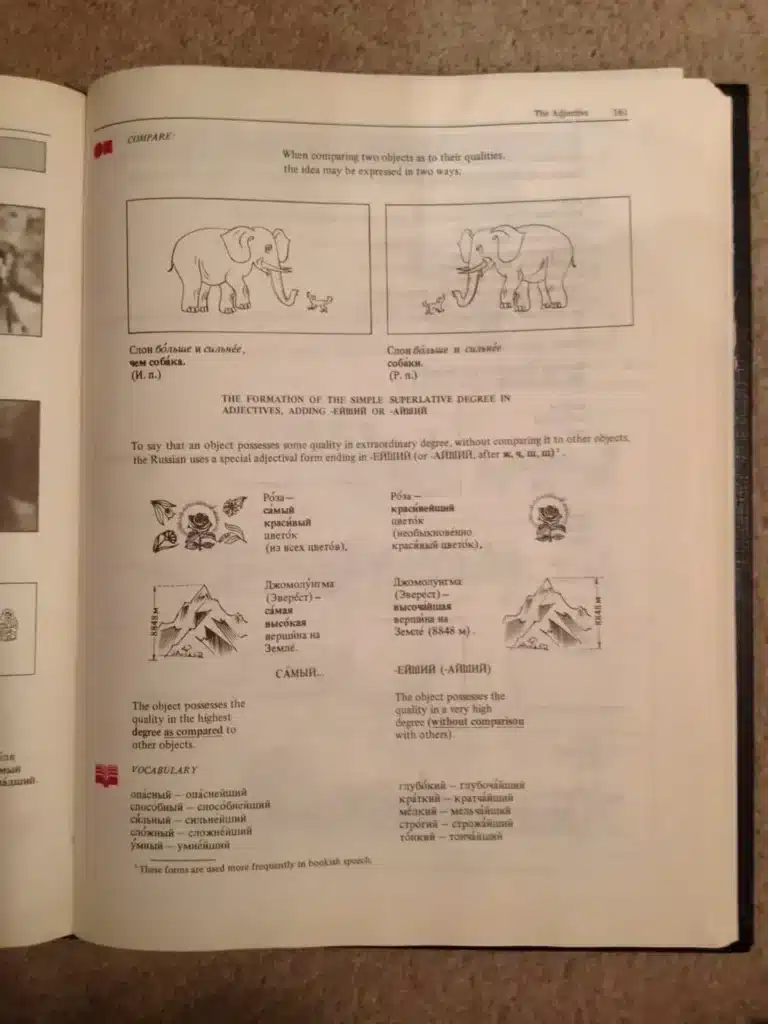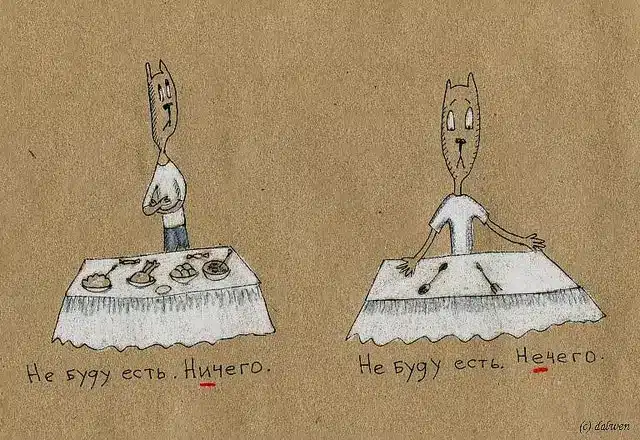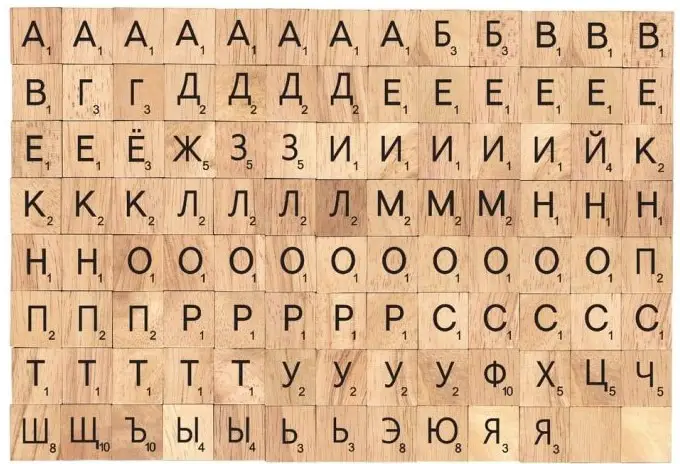Translating between any two languages can be difficult, and translating between Russian and English is no exception. Due to certain grammatical differences, some meanings within the languages can be difficult to translate.
While such differences between English and Russian that affect accurate translation are numerous, below are six of the most interesting in our opinion.
Порядок слов (Word Order)
One of the major differences between Russian and English is порядок слов (word order). Both languages have a basic подлежащее-глагол-дополнение (subject-verb-object) order: Он любит её/ He loves her. This word order is нейтральный (neutral) in Russian, but for выразительность (emphasis), the word order can be changed, in which case it is no longer neutral: Её он любит/Он её любит. In these instances, emphasis is specifically placed on the word moved forward in the word order. The translator, if to keep the original emphasis, will need to creatively carry this into English, perhaps with a нестандартный (non-standard), non-neutral word order (i.e. It is she that he loves) or through other emphasis (i.e. He loves her).
Время (Time) and Действие (Action)
Verbs in English and Russian express время (time) very differently. English relies on 12 времена (tenses) to transmit точное время (exact time). Russian has only three tenses, настоящее (present), прошедшее (past), and будушее (future), but it also uses вид (aspect) to add layers of значение (meaning) emphasizing how the action was performed, if it was completed, repeated, done with specific purpose, etc. While such subtleties can often be expressed in English using phrasal verbs, translators must navigate a web of subtleties and consider each case in context to decide how to express the same thought with economy. For instance, “Я гулял” (I strolled) is much more direct and finite than “Я погулял,” which is closer to “I strolled around awhile.”
Прилагательное в превосходной степени (Superlatives)

Прилагательное в превосходной степени (superlatives) in English have just one form, implying that something is “the most” of something. However, Russian has two types of superlatives: составная and простая (hard and soft) and translating these can be challenging. The simplest way to explain them to an English speaker is that “hard” superlatives are most like those in English. Самый крупный will always refer to “the biggest.” The простая superlative form in Russian is a slightly more книжный стиль (literary form) and is formed with the ending –ейший (or –айший after ж, ч, ш, щ). This form, for example in крупнейший, is most accurately translated as “one of the biggest.” While the difference between the formation of the two Russian forms is small, the fact that Russian has a grammatical form that English does not, and given that mistranslations of this form can result in untrue statements not intended by the speaker, this difference between Russian and English is perhaps one of the translator’s most dangerous pitfalls. See the graphic to the right for further explanation.
Уменьшительные слова (Diminutives)
Russian uses far more уменьшительные слова (diminutives), especially in literature and conversational speech, than does English. Some diminutives have more obvious translations, for example мамочка (mommy) and папочка (daddy). However, others, such as “столик“ can be more challenging. For example, the phrase “Я хочу заказать столик” (I want to reserve a [little] table), becomes almost impossible to fully translate, with a conveyance of light informality and an implication that the table is likely not for many people. Of greater concern are people’s proper names. English speakers are not likely to know, for example, that Саша (Sasha) can be short form of both Александр (Alexander) and Александра (Alexandra) and thus the translator may need to make alterations to the text to alert the audience to this fact. Саша (Sasha) can also transform further into Сашечка, Сашуля, and even Шурик, carrying various connotations of affection and informality. This can be difficult to carry into English without either adding explanation of the Russian tradition or resorting to “little Alex” or “dear Alex” or even “Alex-pie” or other forms that would eventually become difficult and awkward to use consistently in an English text. In English, these can read as forced or are often perceived as детская речь (“baby talk”). Thus, each case must be considered in context.
Пунктуация (Punctuation)
One area often taken for granted by beginning translators is that Russian and English have very different rules of punctuation. Russian, for instance, has very definite rules for comma use and uses them where, in English, it would be unnatural. For example, Pushkin’s quote “Дорогою свободной иди, куда влечет тебя свободный ум” is usually translated as “Walk a free road wherever a free mind leads you” – without the comma because English does use one between dominant and subordinate parts of the sentence, as Russian requires. Quotation marks are also problematic, as they are used in Russian to refer to proper names of businesses and organizations. While one might say “Был в России 800 ресторанов «Макдоналдс,»” one would not say “There were 800 ‘McDonald’s’ restaurants in Russia.” In English, the quotations would carry an added meaning that the restaurants were probably fake. In Russian, it simply says that they are all branded the same. Translators must keep in mind that they are not only translating words, but translating punctuation as well.
Ничего и нечего (Nothing and Nothing)
In addition to обширные (broad) grammatical differences between Russian and English, there are some very особые тонкости (specific details) that affect how sentences should be translated. A common mistake among English speakers is to путать (confuse) ничего and нечего. Although these two words only differ with one letter, their use in sentences and their translation is very different. Ничего, which has the ударение на последний слог (stress on the final syllable) is slightly different from нечего, which has the ударение на первый слог (stress on the first syllable). Ничего is used as a regular negated object, with the subject in the nominative case, while нечего is used in an impersonal construction with the subject in the дательный падеж (dative case). In terms of meaning, нечего usually refers to the complete absence of something, while ничего usually refers to the absence of a specific something. So, for instance, она ничего не боится would mean that “she fears nothing” (there are probably things to fear, but she is fearless) while ей нечего бояться would mean that “she has nothing to fear” (she might be afraid but should not fear). See the pictures below for other good examples of how the two words are correctly used.
More Russian MiniLessons!

New Year Holiday Celebrations: Vocabulary and History
In Russian, New Year is the major celebration of the year. Picture it as Christmas, New Year, and the Fourth of July combined. There are presents, decorated trees, a mythical bearded gift-giver, fireworks, toasts, food, and the grand New Year countdown celebrated at midnight – all associated with this one holiday. Russians are even typically […]

Resources for Students of Russian
This extensive list of web resources to assist students learning the Russian language was developed by SRAS and is now hosted on Folkways, part of the SRAS Family of Sites! Disclosure: Some of the links below are affiliate links. This means that, at zero cost to you, we will earn an affiliate commission if you […]

Kupala: Ancient Slavic Midsummer Mythology and its Modern Celebration
Kupala is an ancient Slavic holiday celebrating the summer solstice, or midsummer. Once part of a series of annual rituals, it marked and was believed to sustain agricultural cycles—essential to early human survival. Held as vitally important, these pagan traditions remained deeply rooted even after Christianization, technological change, and centuries of oppression tried to dislodge […]

Haircuts and Hairstyles in Russian – A Vocabulary Lesson
Living abroad brings new challenges to even the simplest tasks, from buying a belt to getting a haircut. When we are presented with a language barrier, an extra layer of uncertainty is added to what would otherwise be straightforward routines. However, knowing a few key phrases and understanding basic cultural expectations can make these experiences […]

Russian Vocabulary: Haunted Places in Russia
Russian folklore is rich with stories of spirits, haunted places, and supernatural forces that influence daily life. These beliefs shape how certain locations, from uncivilized wilderness to abandoned homes, are viewed in the collective imagination. Unclean spirits, or нечистая сила, are believed to settle in ominous spaces like crossroads, swamps, and even ordinary houses if […]






